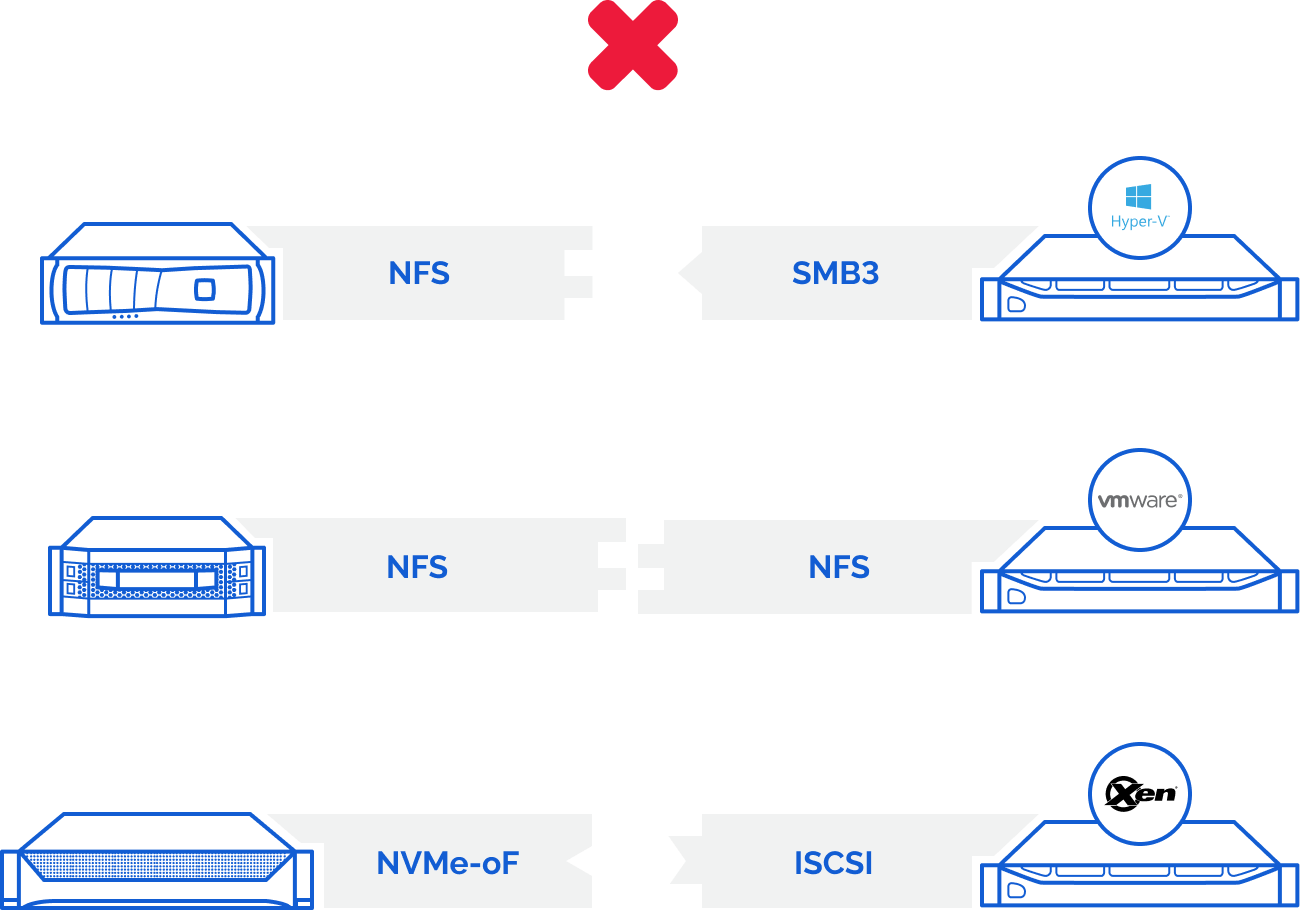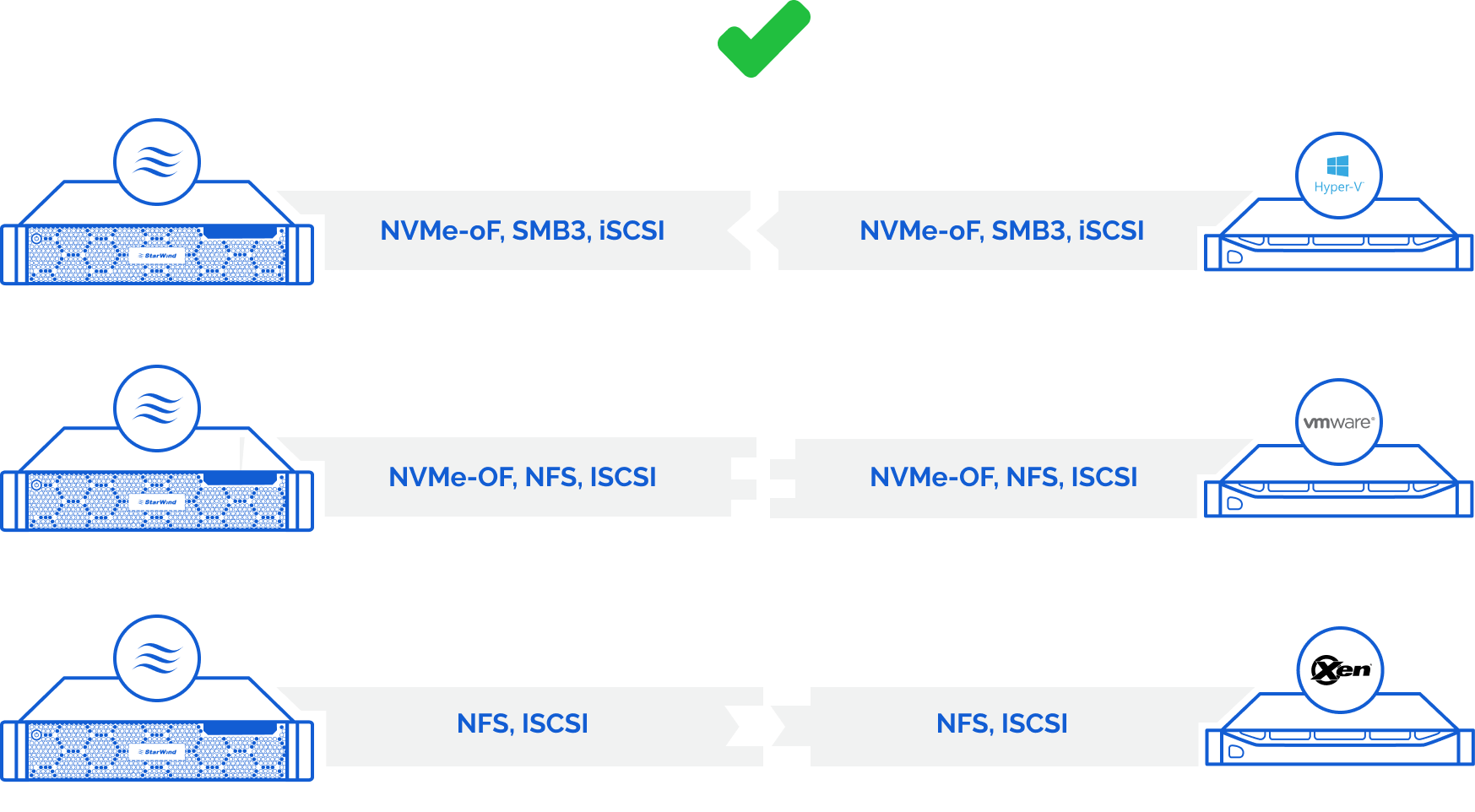StarWind VSAN supporting all industry-standard protocols
- May 14, 2021
- 4 min read
- Download as PDF
INTRODUCTION
The legend says people had only one language before building the Tower of Babel, but then God interfered and they suddenly stopped understanding each other. This is fantasy of course, though in any case now people speak different languages and need some translating medium to communicate freely. Software works in a similar fashion, using protocols as means of communication. Dozens of solutions in this area are now considered as “industry-standard,” which has come to divide the market. Some vendors agreed on mutual compatibility, but most of them decided to keep some “exclusiveness” at the cost of user convenience. Thus, it is considered normal to have different incompatible products as part of one IT infrastructure inside a single company, spending money on some special addition to make them work together.
PROBLEM
Every piece of software has a limited set of supported communication protocols. Even if an application supports multiple protocols, it “prefers” one of them to others in the list, typically having performance issues with using the least preferred. Getting a few different applications to work together may prove a real challenge. When it comes to virtualization, this happens a lot when it comes to storage and its direct consumers. Different vendor solutions can frequently utilize incompatible protocols.
For instance, Microsoft Hyper-V is fine with SMB3 and iSCSI while being compatible with NFS. Alternatively, VMware is great with NFS and iSCSI but not SMB3. Finding a storage solution that will transgress these superfluous vendor restrictions is a challenge. Some software, like VMware Virtual SAN, has its own proprietary protocol, making it even more of a challenge to achieve compatibility. Specialized solutions that allow multiprotocol communication, such as additional “gateway” layers, need skills and money while being a bottleneck in performance since all data must pass through them.

StarWind Virtual SAN supports all industry-standard protocols
SOLUTION
StarWind Virtual SAN fluently exposes all industry-standard uplink protocols. It uses SMB3 with all fuzzy dialect features, including RDMA-supporting SMB Direct and MPIO-utilizing SMB Multichannel, NFSv4.1, and iSCSI (vVols on iSCSI, NVMe over Fabrics, and iSER). It’s great in combining all elements of an IT infrastructure, hardware and software, into a unified, smoothly functioning IT environment. The typical use case scenarios are virtually unlimited: bare-metal, converged, hyperconverged, Clustered Shared Volumes for SOFS, vVols on top of iSCSI, SMB3 file server, and any others you need. StarWind Virtual SAN can expose industry-standard protocols outside and feed the storage to any other deployment based on Hyper-V, vSphere, Xen Project, KVM, etc. StarWind VSAN can satisfy even the highest performance demands — by sharing data via the NVMe-oF protocol (by means of Windows-certified StarWind NVMe-oF Initiator) and VMware.

StarWind Virtual SAN supports all industry-standard protocols
CONCLUSION
StarWind Virtual SAN becomes the universal “gateway” for all industry-standard uplink protocols: iSCSI, NFS, SMB3, NVMe-oF, etc. It functions as a skilled and diligent polyglot that doesn’t need anything else to communicate with others in many different languages. It allows multiple virtualization environments to interact with storage and form a working setup, providing virtually unlimited deployment scenarios.

